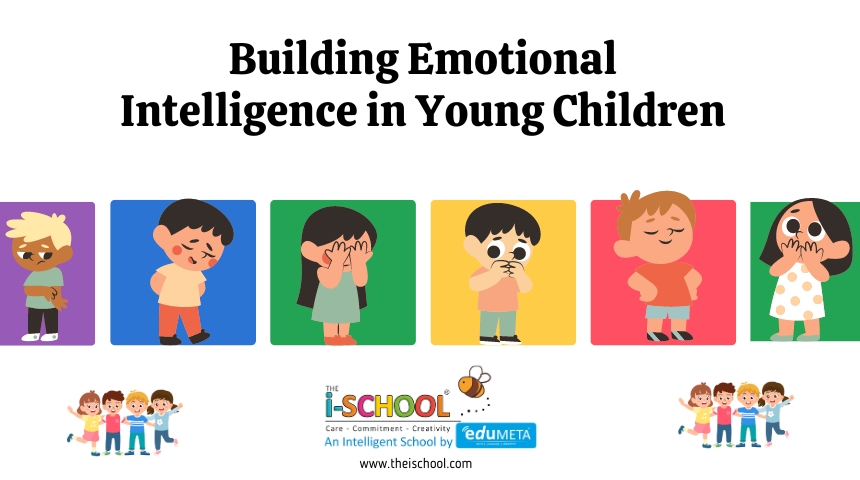Building Emotional Intelligence in Young Children

Emotional intelligence (EI) is a crucial skill that helps individuals navigate their emotions, communicate effectively, and build strong relationships. For young children, developing emotional intelligence is foundational for their overall well-being and success in life. In this article, we’ll explore the importance of building emotional intelligence in young children and provide practical tips for parents and educators to support this essential aspect of their development.
What is Emotional Intelligence?
Emotional intelligence involves the ability to understand, manage, and express one’s emotions appropriately while also recognizing and influencing the emotions of others. Key components of emotional intelligence include:
- Self-awareness: Recognizing and understanding one’s own emotions.
- Self-regulation: Managing and controlling one’s emotions in various situations.
- Social awareness: Recognizing and understanding the emotions of others.
- Relationship skills: Building and maintaining healthy and positive relationships.
- Empathy: Feeling and understanding the emotions of others.
Why is Emotional Intelligence Important for Young Children?
Building emotional intelligence in young children is essential for several reasons:
- Academic Success: Children with high emotional intelligence tend to perform better academically because they can manage stress, focus on tasks, and collaborate effectively with peers.
- Social Skills: Emotionally intelligent children are better at forming and maintaining friendships, resolving conflicts, and working in teams.
- Mental Health: Understanding and managing emotions can reduce the risk of mental health issues such as anxiety and depression.
- Resilience: Emotional intelligence helps children cope with challenges and bounce back from setbacks.
Practical Tips for Building Emotional Intelligence in Young Children
- Model Emotional Intelligence
Children learn by observing the adults around them. Model healthy emotional behavior by expressing your emotions appropriately, showing empathy, and handling conflicts calmly. Demonstrating these behaviors provides a powerful example for children to emulate.
- Label and Validate Emotions
Help children identify and label their emotions by using simple language. For example, “It looks like you’re feeling sad because your toy broke.” Validating their feelings by acknowledging them shows children that their emotions are understood and respected.
- Teach Emotion Regulation Strategies
Equip children with tools to manage their emotions. Techniques such as deep breathing, counting to ten, or taking a break can help them calm down when they feel overwhelmed. Encourage them to talk about their feelings and find constructive ways to express them.
- Encourage Empathy
Promote empathy by encouraging children to consider other people’s feelings. Ask questions like, “How do you think your friend felt when you shared your toy?” Role-playing different scenarios can also help children practice putting themselves in others’ shoes.
- Create a Safe Emotional Environment
Create a supportive and safe environment where children feel comfortable expressing their emotions. Let them know it’s okay to feel a range of emotions and that they won’t be judged or punished for their feelings.
- Use Stories and Play
Books and stories are excellent tools for teaching emotional intelligence. Choose stories that highlight different emotions and discuss the characters’ feelings and actions. Role-playing and pretend play can also help children explore and understand emotions in a safe context.
- Encourage Problem-Solving
When conflicts arise, guide children through the problem-solving process. Encourage them to express their feelings, listen to others, and come up with solutions together. This practice helps them learn to manage emotions constructively and resolve conflicts amicably.
Conclusion
Building emotional intelligence in young children is a vital aspect of their development that sets the foundation for their future success and well-being. By modeling emotional intelligence, validating emotions, teaching regulation strategies, promoting empathy, creating a safe environment, using stories and play, and encouraging problem-solving, parents and educators can support children in developing strong emotional skills. These efforts will help children navigate their emotions, build positive relationships, and thrive in various aspects of their lives. Investing in emotional intelligence early on is a gift that will benefit children throughout their entire lives.
